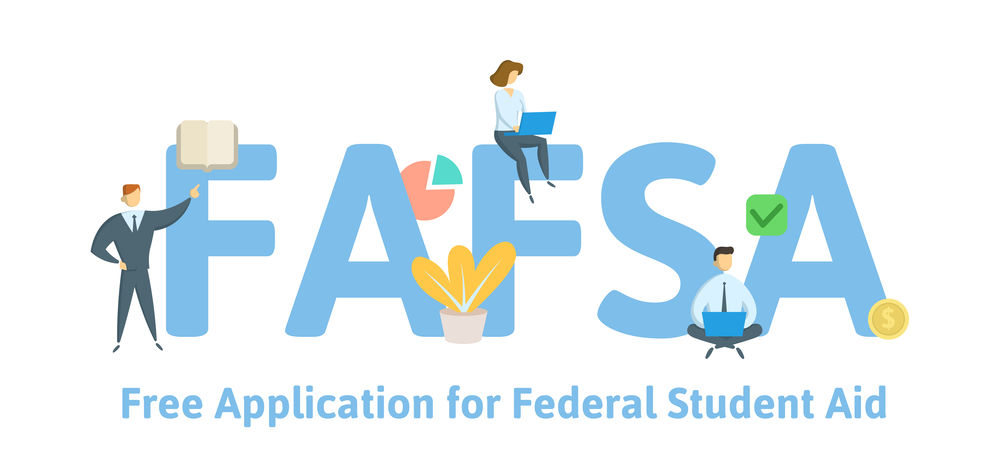
Filling out the FAFSA application can be challenging. But, you definitely shouldn’t let the difficulty of the application get in your way of completing this federal student aid form. It is super important if you’re hoping to get financial aid for college.
We want to help you get as much financial aid as possible for college. That’s why we’re going to break down the FAFSA application, step-by-step so that you know exactly how to fill it out. We are also going to clarify several questions which tend to confuse students.
Here are the steps involved in the FAFSA questions, with an explanation of the information you will need to provide.
FAFSA Questions 1-31 – Student Information
Questions 1-31 are about student information. This first section is pretty straightforward. Because of this, it’s easy to make silly mistakes.
Win more scholarships with less effort
Simplify and focus your application process with the one-stop platform for vetted scholarships.
Check for scholarshipsIt’s crucial that you fill out all information with no mistakes. If you make mistakes, schools that receive your FAFSA application will have trouble matching your application with your individual record on file.
In this section, you need to provide basic information about yourself. You will need to give details like your name, address, social security number, and marital status. If you are married, you need to provide information about your spouse throughout the application.
You will also need to give your education details, as well as your parents. This helps determine your dependency status and whether you are eligible to receive certain state grants.
Finally, you need to state what kind of degree or certification you are seeking. Financial aid varies depending on the degree a student is pursuing.
If you are a male applicant, you need to answer Question 22. (Female applicants may skip this question and move on to question 23). Question 22 asks male students if they are registered with the Selective Service System. The Department of Education requires male students seeking Federal financial aid to be registered for Selective Service. If you aren’t registered, the Department of Education can register for you.
FAFSA Questions 32 – 45 – Student Financial Information

The following questions tend to be more confusing for students. We are going to break them down for you, to help you answer them correctly.
FAFSA Question 38- Student and Spouse’s Tax Exemptions
This question asks how many exemptions you claimed on your tax return last year. These exemptions help reduce your overall income on which you’ll be taxed. To find this information, you can refer to your tax return, line 6D of IRS Form 1040 or Form 1040A, or IRS Form 1040EZ.
FAFSA Question 41- Student and Spousal Total Balance of Cash
This question asks what your current cash balance is in your savings and checking accounts on the day you file the FAFSA. Do not include student financial aid. If you are married, combine your amount with your spouse’s. This information gives a better picture of your financial situation.
FAFSA Question 42- Student (And Spouses) Investments
What is the net worth of your total investments? To calculate this information, add the current value of all your investments (and your spouse’s). Subtract any debts you owe on them. Do not include the home in which you currently live in.
FAFSA Question 44- Additional Financial Information
If you receive additional money in the categories listed on the application, enter the amount. The categories include education credits, outside scholarships or grants, etc.
FAFSA Question 45- Student Untaxed Income
This is where you give details about your untaxed income. They provide six categories. If you have any untaxed income in one of the categories in the past year, check the corresponding box. Enter combined amounts for you and your spouse.
FAFSA Questions 46 – 58 Student Status

If you are an emancipated minor, a ward of the state, homeless, or have a legal guardian, this is the place for you to state this.
As with other questions, if you are married, the information you provide must include your spouse’s financial information. If you get married after you file the FAFSA, let your financial aid office know of any changes.
Students who are a Ward of the Court (question 53) are considered to be independent students. They don’t need to provide parental or legal guardian financial information on the FAFSA.
FAFSA Questions 59-94 – Parent Information
Questions 59-94 ask about your parents’ information. In this fourth step, you give information about your parents’ marital status, social security information, and residency status.
You must also give information about their finances. There are questions about their income tax return, adjusted gross income, income tax, tax exemptions, investments, and untaxed income.
Students often have difficulty answering the following questions. We are going to break them down for you, to clear up any confusion you may have.
FAFSA Question 74- How Many People in Your Parents’ Household Will Be in College in the Following Year?
When answering this question, include yourself as a college student. Don’t include your parents. Include only those who will attend an accredited school in the upcoming year.
FAFSA Question 86- Parents’ Income Tax
This question asks how much your parents paid in income taxes for the previous year. Your parents may find this information in any of the following forms (depending on which form they used to file their tax return):
- IRS Form 1040: Subtract line 46 from line 56 and enter the total
- IRS Form 1040A: Subtract line 36 from line 28 and enter the total
- IRS Form 1040EZ: Use Line 10
FAFSA Questions 88-89- Parents Income Information
What were your parents’ total earnings and income during the previous year? This includes their wage earnings and other income they earned. Both of your parents can find this information in any of the following forms:
- IRS Form 1040: Use Lines 7 + 12 + 18* + Box 14 of IRS Schedule K-1 (Form 1065)
- IRS Form 1040A: Use Line 7
- IRS Form 1040EZ: Use Line 1
FAFSA Question 90- Parents’ Total Balance of Cash
This question wants to know how much money your parents have in cash, savings, and checking accounts. You shouldn’t include student financial aid. The amount you indicate should be true on the day you fill out the application. The FAFSA uses this information to understand your parents’ financial situation.
FAFSA Question 91- Parents’ Investments
What is the net worth of your parents’ investments, including real estate? You shouldn’t include the home in which your parents live.
The FAFSA uses this information to determine your financial need. You should enter the total combined amount of your parent’s investments. Do not include retirement accounts. Subtract any debt your parents owe from the total amount.
FAFSA Question 92- Parents’ Current Business
What is the net worth of your parents’ current businesses? Subtract any debt that is owed. If your parents own multiple businesses, add these figures.
FAFSA Questions 95-102 – Student Household Information
Questions 95-102 are about your household. You must indicate how many members live in your household, whether you received benefits from a federal program, and whether you’re a dislocated worker.
FAFSA Questions 103 – 108 – Send, Sign, and Date

In the final questions, you must sign and date your application. By doing so, you are saying that you submitted all information to the best of your knowledge.
Contacting FAFSA
If you have any specific questions about the FAFSA application, you can make use of their support line (800-433-3243). The TDD number for hearing-impaired individuals is 1-800-730-8913. Do not hesitate to call; you don’t want to make a mistake on your application.
Final Thoughts
Filling out the FAFSA is the most important thing you can do in your search for financial aid. The FAFSA gives students access to a variety of federal grants, loans, and work-study programs.
Complete it as early as possible. Many scholarships and grants are awarded on a first-come first-serve basis.


